Ezzard Charles
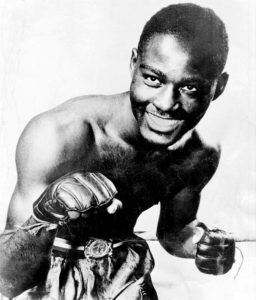
Ezzard Charles 95(52)-25-1
A Rarity
One of the greatest from the vanishing line of sweet scientists, Ezzard Charles was certainly one who carried that now-fading flame well, even if the American public at the time didn’t appreciate it at the time. The Cincinnati Cobra rose through the middleweight ranks, all the way up until he was sitting on top of the great heavyweight perch, and justified his ranking as one of the best fighters in the history of pugilism.
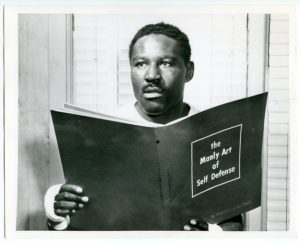
Charles was a student of the sweet science
Growing Up
Born Ezzard Mack Charles in July 7 1921, into a life of poverty in Lawrenceville, Georgia, the Charles family relocated to Cincinnati, Ohio, which would later earn him his nickname ‘The Cincinnati Cobra’. He started boxing at the age of 14, and in four years he amassed a superb 42-0 record, picking up several national titles along the way (including the Diamond Belt championships, AAU & Golden Gloves).
Early Career
Ezzard Charles turned professional at the age of 18, early in 1940. The young Charles put together an impressive string of 20 consecutive wins, 14 inside the distance. This was until he was overmatched (as you often were in those days) against Ken Overlin, an experienced ring veteran, and suffered his first defeat at age 20. Charles however came back, defeating notable fighters including Teddy Yarosz, Joey Maxim, Anton Christonfroridis, and the much feared and avoided Charley Burley, twice.
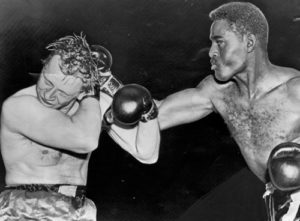
Ezzard Charles was most vicious in his early days
Post-Military Service and Killing Opponent in the Ring
Barely 21, Charles was enlisted in the US Army, and from 1941-45, he barely had many fights, and with little time to train he suffered losses to Jimmy Bivins and Lloyd Marshall. After the forced lay-off, Charles stepped back onto his oath to greatness, and avenged his losses by twice beating Bivins, and knocking out Marshall. He fought the best light heavyweights around, including a knockout of Archie Moore in 1948. Then the following month in February against Sam Baroudi, The Cobra knocked out Sam Baroudi, so viciously that Sam died the next day. Many say that it was at this point where Charles lost his killer instinct and decided to utilise skills, more so than power, to avoid ever damaging an opponent so much again.
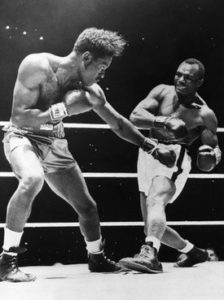
Heavyweight Championship
Failing to get a shot at the light heavyweight title, Charles fought for boxing’s biggest prize in 1949, when he fought Jersey Joe Walcott for the vacant title. Charles won the fight, which would be the start of a quadrilogy between the two. Despite Charles’ great ring technicality, those among the causal boxing fans would much rather prefer to see bloodshed, as opposed to boxing ring generalship and subtlety. This meant that Charles’ somewhat lacked vibrant character and personality in the ring, which is all too necessary when you’ve just beaten up the past champion who had symbolism in abundance.
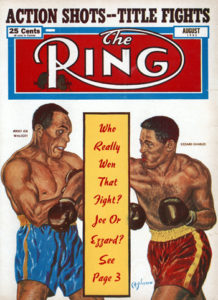
The Charles-Walcott rivalry was one of the best in history
So when Charles intelligently outboxed the ageing Joe Louis, the popular and very-much-loved former heavyweight champion, Charles was never to get the admiration he deserved in his fourth title defence. After a few successful defences (including a rematch with Walcott), Charles lost his title in the third fight against Jersey Joe Walcott, suffering a knockout loss to Walcott, who had now broken a record to become the oldest heavyweight champion in history. The two would have another rematch, which Charles lost by decision.
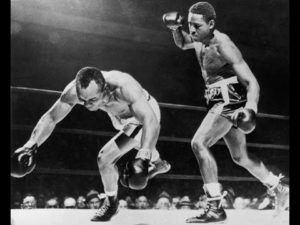
Attempting to regain the crown from Rocky Marciano
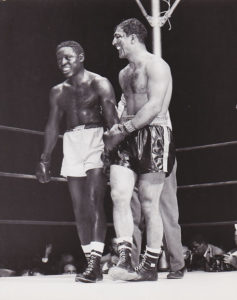
Ezzard Charles gave Rocky his toughest fights
After staying active against a number of top contenders, Charles challenged Rocky Marciano for the heavyweight title now owned by ‘The Rock.’ The first fight in 1954 was won by Rocky Marciano in an unanimous decision. In the immediate rematch, Charles almost toppled Marciano, splitting his nose in half and with the bout one round away from being stopped in Charles’ favour, Rocky summoned the will of the boxing gods and knocked Charles out in the eighth round to retain his title. Rocky later described Charles as the toughest guy he ever encountered in the ring.
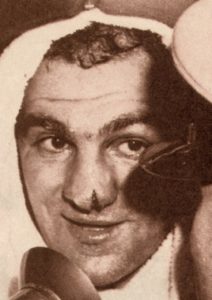
Charles split Rocky’s nose open
Later Life
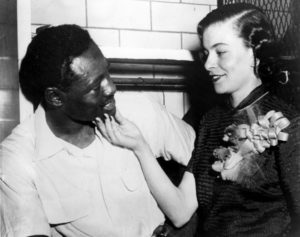
Charles stayed in the ring too long, and in his last 24 fights, he won only 10. After his retirement in 1959, Charles died of lateral sclerosis in 1975, aged 53. His career could be described with one phrase: ‘lack of appreciation’, as he truly was one of the most courageous and most skilled fighters of the sport, and fought in possibly the most competitive era in boxing. But to those who appreciation subtle brilliance, Charles will always remain one of the most impressive of men to grace boxing.
(SIDE-NOTE: There is some confusion about Charles record in the early stages, a result of his manager making adjustments to his record to pad his resume.)

Leave a Reply
Be the First to Comment!